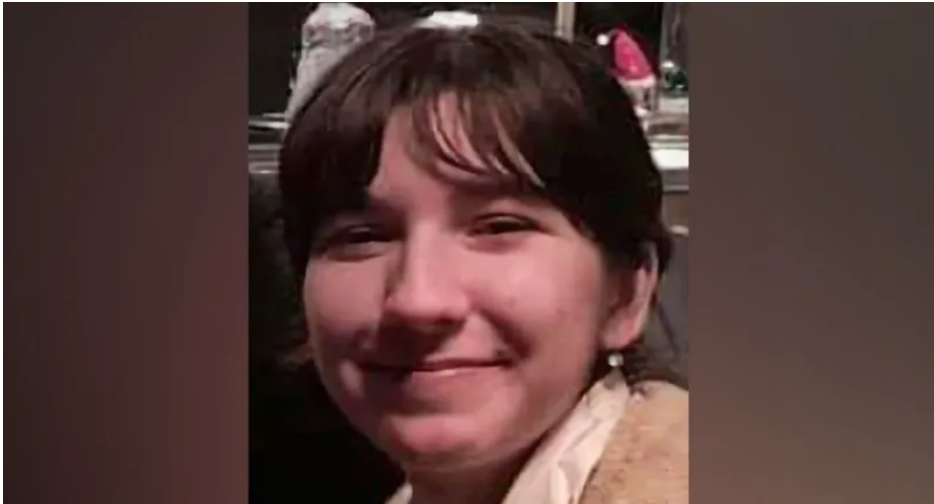Killer in femicide that shocked Italy sentenced to life in jail
Filippo Turetta, a 22-year-old Italian student who confessed to fatally stabbing his ex-girlfriend, Giulia Cecchettin, last year, has been sentenced to life imprisonment.
The murder case captured national attention in Italy, igniting widespread debate about violence against women.
After the verdict was delivered in a Venice court, Giulia’s father, Gino Cecchettin, told reporters: “No one can bring Giulia back, so I feel neither more relieved nor more sorrowful than I did yesterday or will tomorrow.” He emphasized the importance of collective efforts to combat gender-based violence, saying, “This is a battle we must fight together as a society… we look forward with the hope that no other father will face what I have.”
Over the past year, disturbing details of the killing have surfaced, portraying Giulia as a young woman increasingly tormented by a controlling ex-boyfriend who struggled to accept the end of their relationship.
The case, which resonated deeply with Italians, has brought issues such as femicide, patriarchy, and male violence to the forefront of public discourse.
On November 11, 2023, Turetta met Giulia, a 22-year-old biomedical engineering student from the Venice region, ostensibly to help her shop for an outfit for her upcoming graduation. Later that evening, he stabbed her over 70 times and abandoned her body, wrapped in plastic bags, in a ditch.
Then, he disappeared. For a week, Italians followed the search for the couple with bated breath. The discovery of Ms Cecchettin’s body on 18 November was met with an unprecedented outpouring of grief. The next day, Mr Turetta was arrested in Germany. He readily admitted to killing Ms Cecchettin and was extradited to Italy.
To raise awareness of the signs of controlling relationships, Ms Cecchettin’s family recently shared a list she wrote a few months before her death, titled “15 reasons I had to break up with him”.
In it, Ms Cecchettin said Mr Turetta insisted she had a “duty” to help him study, complained if she sent him fewer emoji hearts than usual, didn’t want her to go out with friends and needed her to text him all the time.
“They were the typical signs of possessiveness,” Giulia’s father Gino told the BBC. “He would deny her her own space, or demand to always be included. He always needed to know everything she said to her friends or even her therapist.”
“We realised later that she thought she was the cause of his pain, that she felt responsible for it,” he said.
In an 80-page statement written from jail in childlike handwriting, Mr Turetta said since Ms Cecchettin broke up with him he spent every day hoping to get back with her. “I didn’t feel like I could accept any other outcome,” he wrote.
In his police interrogation Mr Turetta confirmed that, on the night he killed her, Ms Cecchettin had just told him he was too dependent and needy.
“I shouted that it wasn’t fair, that I needed her,” Mr Turetta said, adding that he killed her after getting “very angry” when she tried to get out of the car.
“I was selfish and it’s only now I realise it,” he wrote. “I didn’t think about how incredibly unfair that was to her and to the promising and wonderful life she had ahead of her.”
Filippo Turetta, the 22-year-old Italian student who admitted to stabbing to death his ex-girlfriend Giulia Cecchettin last year, has been sentenced to life in jail.
The murder case gripped Italy and sparked a heated debate on the issue of violence against women.
Speaking to reporters after the sentence was read out in a Venice court, Giulia’s father Gino Cecchettin said: “Nobody is giving me Giulia back so I am neither more relieved nor more sad than I was yesterday or than I will be tomorrow.”
He added that the battle against gender violence was one “we’ll have to fight together as a society… we look ahead and hope another dad won’t find himself at my place”.
Over the last year a huge amount of detail about the killing has emerged, forming a picture of an increasingly anguished young woman harassed by her possessive ex-boyfriend who refused to accept the end of their relationship.
The case, which captivated Italians, has thrust the concepts of femicide, patriarchy and male violence into the headlines.
On 11 November 2023 Mr Turetta picked up his fellow university student and ex-girlfriend Ms Cecchettin, a 22-year-old biomedical engineering student from the Venice province, to take her shopping for an outfit for her upcoming graduation.
Later that evening, he stabbed her more than 70 times, and left the student’s body at the bottom of a ditch, wrapped in plastic bags.
Then, he disappeared. For a week, Italians followed the search for the couple with bated breath. The discovery of Ms Cecchettin’s body on 18 November was met with an unprecedented outpouring of grief. The next day, Mr Turetta was arrested in Germany. He readily admitted to killing Ms Cecchettin and was extradited to Italy.
To raise awareness of the signs of controlling relationships, Ms Cecchettin’s family recently shared a list she wrote a few months before her death, titled “15 reasons I had to break up with him”.
In it, Ms Cecchettin said Mr Turetta insisted she had a “duty” to help him study, complained if she sent him fewer emoji hearts than usual, didn’t want her to go out with friends and needed her to text him all the time.
“They were the typical signs of possessiveness,” Giulia’s father Gino told the BBC. “He would deny her her own space, or demand to always be included. He always needed to know everything she said to her friends or even her therapist.”
“We realised later that she thought she was the cause of his pain, that she felt responsible for it,” he said.
In an 80-page statement written from jail in childlike handwriting, Mr Turetta said since Ms Cecchettin broke up with him he spent every day hoping to get back with her. “I didn’t feel like I could accept any other outcome,” he wrote.
In his police interrogation Mr Turetta confirmed that, on the night he killed her, Ms Cecchettin had just told him he was too dependent and needy.
“I shouted that it wasn’t fair, that I needed her,” Mr Turetta said, adding that he killed her after getting “very angry” when she tried to get out of the car.
“I was selfish and it’s only now I realise it,” he wrote. “I didn’t think about how incredibly unfair that was to her and to the promising and wonderful life she had ahead of her.”
Elisa Ercoli of Differenza Donna, a charity that fights gender-based violence, told the BBC the messages had a tangible impact, with her organisation getting a high number of calls from parents who recognised similar behaviours in their daughters. “We think bruises are the problem but underhand psychological violence is the issue in many situations,” she said.
A government department has also said that the national anti-violence helpline experienced a surge in calls after Ms Cecchettin’s murder, and that the number of calls is now 57% higher than last year.
But NGOs and opposition politicians are all demanding that Prime Minister Giorgia Meloni’s government take concrete steps to prevent and punish violence against women, such as “affectivity lessons” in schools.
“What the Cecchettin family is doing is a grain of sand compared to what the government would have the power to achieve,” said Francesca Ghio, a leftwing councillor in Genoa who recently publicly revealed she was raped when she was 12 – she said the decision to speak out was inspired by the “strength” of the Cecchettin family.
“They are turning their pain into love and action. We can’t just stand by.”
In late November, as the 10-week trial approached its end, Mr Cecchettin said he felt calm.
Remembering his “perfect daughter” who is now a household name, Mr Cecchettin said he thought there would be a “before” and an “after” Giulia’s murder.
But while Italy has gained a symbol, his loss is incalculable. “I realised I can’t rewind life and time,” he said, “and I realised that nobody can ever give me Giulia back.”



